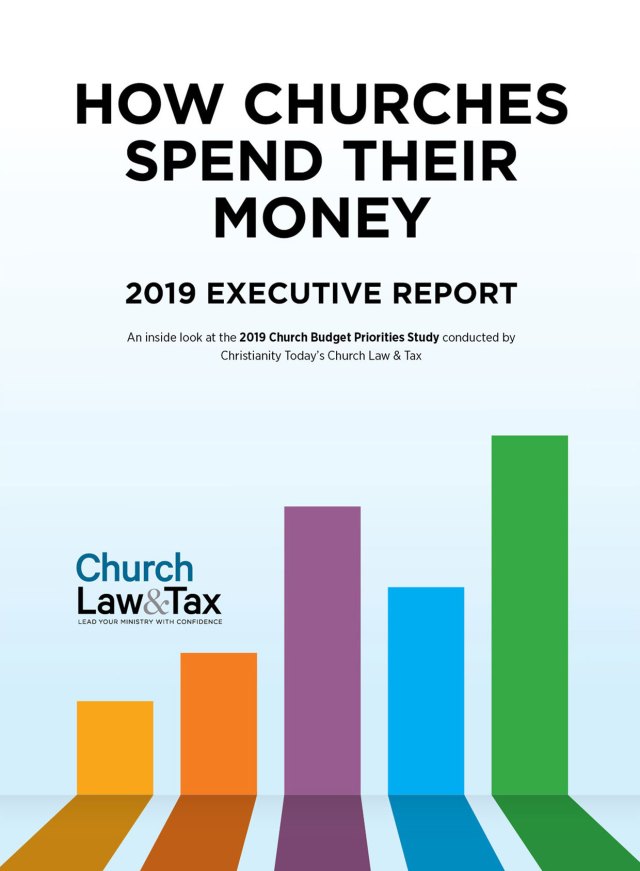Editor’s Note. This article is part of the Advantage Membership. Learn more on how to become an Advantage Member or upgrade your membership.
How has the 2020 pandemic affected the way churches compensate pastors and staff members?
It’s an important question, especially in light of the federal government’s heavy push to promote the Paycheck Protection Program, the increased levels of unemployment seen in many states, and the mixed signals about the state of church finances. Some church leaders recently told me that their giving has never been stronger, despite the absence of in-person gatherings and continued financial uncertainties in many households. But still other signs point to budgetary struggles, particularly among smaller congregations.
So, are churches freezing hiring decisions? Requiring pay cuts? Providing raises? And what do those varying approaches mean for church compensation heading into 2021?
I posed these questions to church and nonprofit CPA Elaine Sommerville, one of Church Law & Tax’s senior editorial advisors. Sommerville hosted “Tripping Points for Pastoral Compensation,” a webinar exclusively for Advantage Members like you.
She also shared five additional insights with me:
1. Researching reasonable compensation levels for pastors and staff members remains crucial. Church boards and compensation committees still must determine what reasonable compensation looks like for each paid position, using such factors as comparable data, job duties, and education and experience. Compensation research is a notable theme for Sommerville’s upcoming webinar, and one covered in her book, Church Compensation, Second Edition.
The pandemic hasn’t changed the importance of this step, and likely has only elevated its importance as both job roles and duties change and new positions with digital-related responsibilities emerge. Regardless of the role, compensation research establishes “a guideline that verifies your church isn’t overpaying,” which can trigger severe, unintended tax liabilities and consequences for the church and the employee, Sommerville noted.
2. Document the financial worth of a pastor or staff member, even if your church can’t pay it (but see #3). Churches should formally document the compensation (pay plus benefits) that they believe their ministers and staff members are worth, even if they cannot pay those amounts right now, Sommerville said. This enables the church to more readily justify compensation increases for those individuals in future years, she added. For instance, if a church believes its pastor is worth $50,000 in 2020, but it could only afford to pay him or her $40,000, then a decision in 2021 to bump up the pay to $50,000 is easier to make because there’s existing documentation to support it.
3. Recognize the pastor or staff member’s compensatory worth, but do not promise to later “make up” the difference. While the documentation process in #2 is important, a church cannot explicitly or implicitly promise to later make up the difference between the person’s “on paper” value and actual compensation, Sommerville stressed. She provides three primary reasons why: First, such a move could trigger deferred compensation rules, and violating these rules carries heavy taxes and penalties for the employee. Second, a financial auditor likely may view such a promise as a liability that must be accrued and recorded in a church’s financial statements, negatively hurting the church’s financial position. And third, a potential legal liability may form if the church never pays the difference and the pastor or staff member, believing it is due them, sues to recover it.
4. Remember that non-cash benefits still pose consequences. Churches often like to get creative and provide other non-cash benefits to pastors or staff members. If cash flow is down, non-cash benefits can be seen as a way to “bless” staff members, including ministers. Good-spirited as those may be, they’re of value, and anything of value can still tip the scales as far as whether a person’s total compensation is reasonable or unreasonable (and, if it tips into unreasonable territory, the penalties are severe). Furthermore, most non-cash benefits still trigger tax consequences for the recipients.
5. Be aware that more pastors may be contemplating retirement sooner than their congregations think. Sommerville said some pastors feel as though ten years of change have been crammed into the past eight months as they have pivoted many operations to new formats during the pandemic.
Specifically, churches have faced the option to move to online ministry or physically close for weeks, months, or even permanently. Further, controversies tied to opening church doors, doing online ministry, and counseling people facing their own intense pressures have compounded ministerial stress and fatigue, taking a significant psychological toll on pastors, she added. The fact that many were already in the later stages of their ministry careers could prompt some “to just say, ‘I’m done,’” Sommerville said. Congregations consequently should be thinking about how they’re helping pastors financially plan for retirement, not to mention creating succession plans for their congregations.
Be sure to watch the webinar to learn more about these topics and more about compensation planning.





